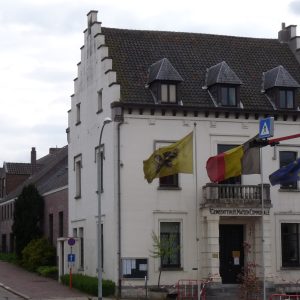
How a commune works
Municipal administrations have come a long way, from dusty, dormant council chambers to more professional management.
Today, the commune is headed by a directeur général (formerly secrétaire communal), a sort of super-director with far-reaching powers over personnel and administration.
The burgomaster is no longer the godfather-like dignitary of yesteryear. He must now be a manager to give political direction to the complex administration. He does this together with his fellow aldermen (5 in Kraainem) and the 23-member Local Council. In principle, the Council meets once a week, and the Local Council once a month.
In concrete terms, the Council is the executive body, and the Communal Council is the legislative body.
The burgomaster is the president of the Collège échevinal, and the general manager is its secretary. The Board makes its decisions by consensus. If unsuccessful, the matter is put to a vote by the local council.
The CPAS Council has 9 members and meets once a month. The PCSW’s permanent office meets in principle once a week and is responsible for the practical direction of the PCSW’s activities.
At the same time, commissions are set up to prepare matters for the Municipal Council’s vote.
For example, there’s the Public Works & Mobility Commission, chaired by Olivier Joris (Pro-Kraainem), the Heritage Commission, chaired by Dorothée Cardon de Lichtbuer (Pro-Kraainem), the Finance Commission, chaired by Christiaan Marichal (MR), and so on. Commissions are preparatory meetings where you can ask all your questions, and the more relaxed atmosphere is conducive to productive debate. They have a high added value and are also open to the public. Unfortunately, commissions are not organized often enough, but we’re doing everything we can to remedy the situation.
And are all these meetings really useful?
Absolutely, at least if you believe in local democracy, i.e. a commune where the citizens themselves oversee how the taxes they pay are spent and largely determine how their commune should be run. In the past, during certain darker periods, some citizens gave their lives to obtain these rights. All elected representatives have a duty to maintain this precious asset through serious and effective governance.
